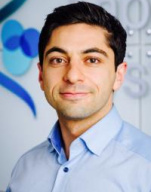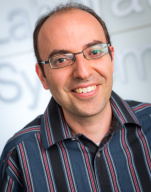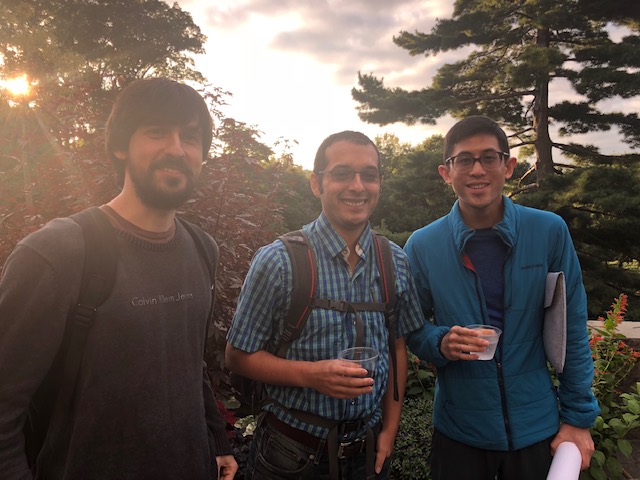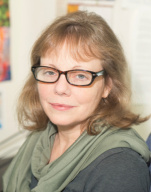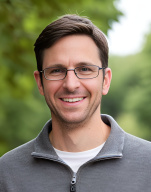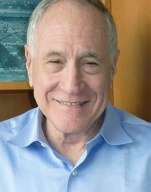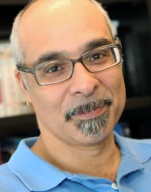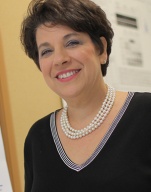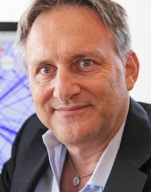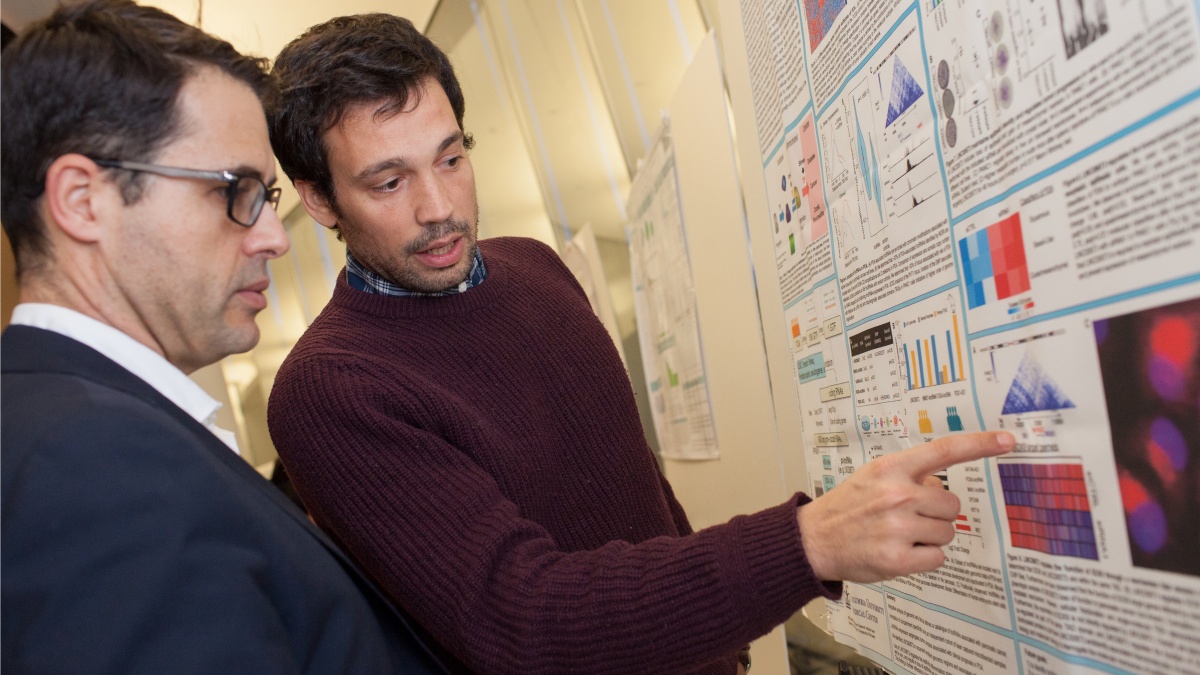
Pictured above, Adolfo Ferrando (left), professor of pediatrics and of pathology and cell biology at Columbia, with Luis Arnes, associate research scientist and first-place winner of the symposium's poster competition; For photos from the symposium, visit the gallery page . Credit: Lydia Lee Photography
A multidisciplinary team of researchers across Columbia University have been busy addressing the complex challenges in basic and translational cancer research. Faculty and investigators are bridging their expertise in fields ranging from mathematics, biology, and engineering to physics, genomics, and chemistry to develop innovative approaches to better understand, for instance, cancer disease progression, drug resistance, and the systems-wide network of tumor evolution.
Central to this ongoing work is research grounded in cancer genomics and mathematical data analysis explored during a two-day conference Feb. 7-8 co-hosted by the National Cancer Institute (NCI) centers at Columbia University Medical Center, Cornell University, and Memorial Sloan Kettering Cancer Center. (Visit the Rabadan Lab YouTube Channel for video of the symposium).
"Genomics is becoming an important tool for the quantitative study of biological systems,” says Raul Rabadan, PhD , professor of systems biology at Columbia and director of the Center for Topology of Cancer Evolution and Heterogeneity and of the Program for Mathematical Genomics . “This meeting organized by four different NCI centers addressed some of the important challenges and new perspectives on the quantitative understanding of cancer using genomics tools.”
